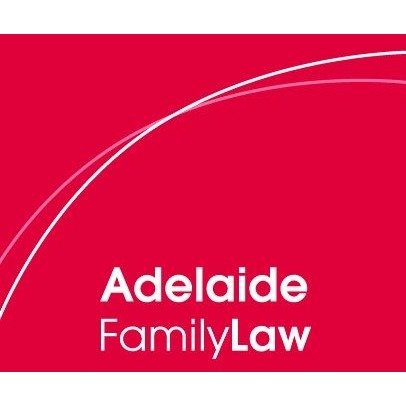Best Adoption Lawyers in Australia
Share your needs with us, get contacted by law firms.
Free. Takes 2 min.
Free Guide to Hiring a Family Lawyer
Or refine your search by selecting a city:
List of the best lawyers in Australia
About Adoption Law in Australia
Adoption in Australia is governed by a combination of federal and state-specific laws, with each state and territory having its own legislation and guidelines regarding adoption procedures. The primary aim of adoption is to provide a permanent family for children who cannot live with their birth parents. Adoption laws in Australia focus on the welfare and best interests of the child, considering factors such as their cultural and family background. Prospective adoptive parents must meet specific eligibility criteria, undergo thorough assessments, and participate in training to ensure suitability.
Why You May Need a Lawyer
Adoption can be a complex legal process, and there are several situations where you might require the assistance of a lawyer:
- Understanding Legal Requirements: Navigating the various legal requirements and eligibility criteria set by different states and territories can be challenging.
- Liaising with Adoption Agencies: A lawyer can facilitate communication and ensure all legal processes are properly adhered to when working with adoption agencies.
- International Adoption: Adopting a child from another country involves additional legal layers and international legal frameworks.
- Birth Parent Rights: Legal advice may be required when addressing issues related to the rights of birth parents, including consent procedures.
- Adoption Orders: Ensuring all necessary orders and confirmations are appropriately managed by the courts.
Local Laws Overview
Here is a summary of key aspects of local adoption laws in Australia:
- Adoption Approval Process: The process involves assessments, interviews, and training, which vary by state or territory.
- Open Adoption: Many states favor open adoption, allowing some degree of contact between the adopted child and their birth family.
- Consent Requirements: The consent of the birth parents is generally required, but this varies depending on the circumstances.
- Eligibility Criteria: Prospective adoptive parents must meet specific criteria, which may include age and residency requirements.
- Step-parent and Relative Adoption: Different procedures may apply for step-parent and relative adoptions.
Frequently Asked Questions
What are the main types of adoption in Australia?
There are several types of adoption in Australia, including local, intercountry, step-parent, and relative adoption. Each type has specific requirements and procedures.
Who is eligible to adopt in Australia?
Eligibility varies by state, but typical criteria include age, residency, and sometimes marital status. Prospective parents usually undergo assessments to determine their suitability.
What is the role of an adoption agency?
Adoption agencies facilitate the adoption process by conducting assessments, providing training for prospective adopters, and assisting with legal procedures.
Can adopted children find their birth parents?
Yes, adopted individuals can seek information about their birth parents, especially in open adoptions, and under certain conditions in closed adoptions.
What is the process for international adoption?
International adoption involves meeting both Australian legal requirements and those of the child's home country, which can be complex and time-consuming.
What does 'open adoption' mean?
Open adoption refers to a process where adoptive families maintain some level of contact with the birth family, which can benefit the child's sense of identity.
What happens if birth parents contest the adoption?
If birth parents contest an adoption, legal procedures are initiated to resolve the situation, balancing the rights of biological parents with the child's best interests.
How long does the adoption process take?
The timeline for adoption varies greatly depending on the type of adoption and specific circumstances but can often take several years.
Are there costs involved in adopting a child?
Yes, adoption involves various costs, including legal fees, agency charges, and, for international adoptions, travel expenses.
Can single individuals adopt?
In some states and territories, single individuals can adopt, but the regulations and eligibility criteria vary across the country.
Additional Resources
Consider reaching out to the following resources for more information and support regarding adoption:
- State and Territory Government Adoption Units
- Intercountry Adoption Australia (ICAA)
- Adopt Change - Advocacy Group
- Australian Institute of Health and Welfare (AIHW) - Adoption Information
Next Steps
If you need legal assistance regarding adoption in Australia, consider the following steps:
- Consult a Lawyer: Seek advice from a lawyer specializing in family law and adoption.
- Research State/Territory Laws: Familiarize yourself with the specific adoption laws in your state or territory.
- Contact Adoption Agencies: Engage with licensed adoption agencies for guidance and support.
- Attend Information Sessions: Participate in information sessions offered by government bodies or agencies to better understand the process.
- Prepare Documentation: Gather necessary documents and personal information needed for the adoption application.
Lawzana helps you find the best lawyers and law firms in Australia through a curated and pre-screened list of qualified legal professionals. Our platform offers rankings and detailed profiles of attorneys and law firms, allowing you to compare based on practice areas, including Adoption, experience, and client feedback.
Each profile includes a description of the firm's areas of practice, client reviews, team members and partners, year of establishment, spoken languages, office locations, contact information, social media presence, and any published articles or resources. Most firms on our platform speak English and are experienced in both local and international legal matters.
Get a quote from top-rated law firms in Australia — quickly, securely, and without unnecessary hassle.
Disclaimer:
The information provided on this page is for general informational purposes only and does not constitute legal advice. While we strive to ensure the accuracy and relevance of the content, legal information may change over time, and interpretations of the law can vary. You should always consult with a qualified legal professional for advice specific to your situation.
We disclaim all liability for actions taken or not taken based on the content of this page. If you believe any information is incorrect or outdated, please contact us, and we will review and update it where appropriate.
Browse adoption law firms by city in Australia
Refine your search by selecting a city.
















